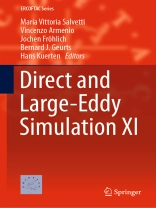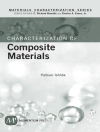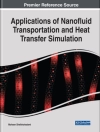This book gathers the proceedings of the 11th workshop on Direct and Large Eddy Simulation (DLES), which was held in Pisa, Italy in May 2017. The event focused on modern techniques for simulating turbulent flows based on the partial or full resolution of the instantaneous turbulent flow structures, as Direct Numerical Simulation (DNS), Large-Eddy Simulation (LES) or hybrid models based on a combination of LES and RANS approaches. In light of the growing capacities of modern computers, these approaches have been gaining more and more interest over the years and will undoubtedly be developed and applied further. The workshop offered a unique opportunity to establish a state-of-the-art of DNS, LES and related techniques for the computation and modeling of turbulent and transitional flows and to discuss about recent advances and applications.
This volume contains most of the contributed papers, which were submitted and further reviewed for publication. They cover advances incomputational techniques, SGS modeling, boundary conditions, post-processing and data analysis, and applications in several fields, namely multiphase and reactive flows, convection and heat transfer, compressible flows, aerodynamics of airfoils and wings, bluff-body and separated flows, internal flows and wall turbulence and other complex flows.
Cuprins
Part I: Numerical methods.- Chapter 1. Adaptive Direct Numerical Simulation with Spatially-Anisotropic Wavelet-Based Refinement.- Chapter 2. Towards Adaptive Mesh Refinement for the Spectral Element Solver Nek5000.- Chapter 3. Discrete Conservation of Helicity in Numerical Simulations of Incompressible Turbulent Flows.- Chapter 4. A Massively Parallel, Direction-Splitting Solver for DNS in Complex Geometries.- Chapter 5. An Analysis of Time-Integration Errors in Large-Eddy Simulation of Incompressible Turbulent Flows.- Chapter 6. Evaluation of the Spectral Element Dynamic Model for LES on Unstructured, Deformed Meshes.- Chapter 7. A Discontinuous Galerkin Variational Multiscale Approach to LES of Turbulent Flows.- Chapter 8. Implicit LES Approaches via Discontinuous Galerkin Methods at Very Large Reynolds.- Chapter 9. Implicit LES of a Turbulent Channel Flow with High-Order Discontinuous Galerkin and Finite Volume Discretization.- Chapter 10. An Implicit Discontinuous Galerkin Method with Reduced Memory Footprint for the Simulation of Turbulent Flows.- Chapter 11. On the Development of an Implicit High-Order Discontinuous Galerkin Solver for a Hybrid RANS-LES Mode.- Chapter 12. Assessment of High-Order Discontinuous Galerkin Methods for LES of Transonic Flows.- Chapter 13. Efficient Pressure-Correction Method for Interfacial Tracking Appropriate for the Immersed Boundary Method.- Part II: LES Modeling.- Chapter 14. On the Eddy Viscosity Associated with the Subgrid Stresses.- Chapter 15. Implicit/Explicit Spectral Viscosity and Large-Scale SGS Effects.- Chapter 16. Realizable Dynamic Large Eddy Simulation.- Chapter 17. The Dynamic Smagorinsky Model in 5123 Pseudo-Spectral LES of Decaying Homogeneous Isotropic Turbulence at Very High Reλ.- Chapter 18. Nonlinear Subgrid-Scale Models for Large-Eddy Simulation of Rotating Turbulent Flows.- Chapter 19. A New Subgrid Characteristic Length for LES.- Chapter 20. On the Richardson extrapolation of the Reynolds Stress with the Systematic Grid and Model Variation Method.- Chapter 21. Spatial Filtering for Reduced Order Modeling.- Chapter 22. A RANS Assisted LES Approach.- Part III: Pre-processing, Post-processing and Data Analysis.- Chapter 23. Analysis of a Synthetic Turbulence Generation Method for Periodic Configurations.- Chapter 24. The Effect of Lossy Data Compression in Computational Fluid Dynamics Applications: Resilience and Data Postprocessing.- Chapter 25. Augmented Prediction of Turbulent Flows via Sequential Estimators.- Part IV: Multiphase and Reactive Flows.- Chapter 26. High Performance CFD/DEM Approach in Complex Geometries on Unstructured Meshes.- Chapter 27. Direct Numerical Simulation of Spherical Bubbles in a Downward Turbulent Channel Flow.- Chapter 28. DNS of Thermocapillary Migration of Deformable Droplets.- Chapter 29. The Motion of Settling Particles in Isotropic Turbulence: Filtering Impact and Kinematic Simulations as Subfilter Model.- Chapter 30. Evaporation Dynamics in Dilute Turbulent Jet Sprays.- Chapter 31. A Novel Turbulent Inflow Data Generation Method and Its Application to the Simulation of Primary Breakup.- Chapter 32. Studying Transient Jet flames by High-Resolution LES Using Premixed Flamelet Chemistry.- Chapter 33. Identification of Combustion Trajectories Using t-Distributed Stochastic Neighbor Embedding (t-SNE).- Chapter 34. Impact of Scalar Dissipation Rate on Turbulent Spray Combustion Investigated by DNS.- Chapter 35. Modeling of Convective and Conductive Conjugate Heat Transfer in a Kerosene/Air Spray Flame Used for Aeronautical Fire Resistance Tests.- Part V: Convection and Heat Transfer.- Chapter 36. Towards the Direct Numerical Simulation of a simplified Pressurized Thermal Shock.- Chapter 37. Study of the Flow Around a Heated Cylinder in Mixed Convection Regime.- Chapter 38. Direct Numerical Simulation of Convective Turbulent Channel Flow of fluid Mixtures.- Chapter 39. Momentum and Buoyancy Repartition in Turbulent Mixed Convection.- Chapter 40. Buoyancy-driven Flow Inside an Asymmetrically Heated Cavity.- Chapter 41. LES of Natural Convection in a Closed Cavity.- Part VI: Compressible Flows.- Chapter 42. Polynomial Adaptivity in LES: Application to Compressibility Effects Investigation on Bluff Bodies.- Chapter 43. Direct Numerical Simulation of Compressible Flows Around Spherical Bodies Using the Immersed Boundary Method.- Chapter 44. Large Eddy Simulation of Highly Compressible Jets with Tripped Boundary Layers.- Chapter 45. Analysis of Dense Gas Effects in Compressible Turbulent Channel Flows.- Part VII: Airfoils and Wings.- Chapter 46. Effect of Inflow Turbulence on LES of an Airfoil Flow with Laminar Separation Bubble.- Chapter 47. Flow around Thick Airfoils at Very High Reynolds Number. Stall and Dynamic Stall Applications.- Chapter 48. On the Resolution of Mean Skin Friction by Hybrid RANS/LES Simulations at High Reynolds Numbers.- Chapter 49. DNS of Separated Low-Re Flow around a Cambered Aerofoil.- Chapter 50. High Reynolds Number Airfoil: from Wall-Resolved to Wall-Modeled LES.- etc.












